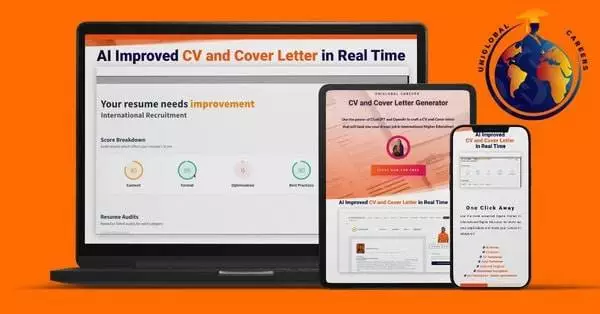Knowledge exchange programs have always played a critical role in facilitating information sharing and promoting collaboration across industries. However, as technology continues to evolve rapidly, there is an urgent need to leverage AI, which brings countless benefits in improving communication and collaboration, enhancing knowledge accessibility and organization, and boosting overall efficiency and productivity. In this article, we will explore the various benefits of AI-powered knowledge exchange programs, and how they can accelerate innovation and drive growth in organizations of all sizes.
Understanding AI in Knowledge Exchange Programs
Defining Artificial Intelligence
Artificial Intelligence (AI) refers to the development and use of computer systems that can perform tasks that normally require human intelligence, such as learning, reasoning, and problem-solving. These intelligent systems can analyze vast amounts of data, recognize patterns, and make predictions or decisions based on the available information. In the context of knowledge exchange programs, AI can play a crucial role in facilitating communication, knowledge sharing, and collaboration among individuals and teams from different organizations.
The Role of AI in Knowledge Exchange Programs
AI can help knowledge exchange programs in various ways. A few ways include overcoming language barriers, facilitating real-time interaction, and streamlining project management. With AI-powered tools, participants can quickly translate conversations, messages, or documents in real-time, allowing them to communicate effectively with people from different backgrounds, cultures, and languages. AI can also improve collaboration and productivity by automating routine tasks, such as scheduling meetings, providing guidance on project milestones, and managing tasks assigned to team members. By enabling participants to access important information from different sources, AI can help create a collaborative, cross-functional learning environment.
One of the most significant benefits of AI in knowledge exchange programs is its ability to process vast amounts of data. With AI-powered tools, participants can analyze large datasets and identify patterns and trends that may not be apparent to the human eye. This can help organizations make informed decisions and develop strategies based on data-driven insights.
Moreover, AI can help knowledge exchange programs overcome some of the challenges associated with traditional communication methods. For example, language barriers can be a significant obstacle to effective communication and collaboration. AI-powered translation tools can help participants overcome these barriers by translating conversations and documents in real-time. This can help facilitate cross-cultural communication and improve understanding among participants.
Another way AI can help knowledge exchange programs is by facilitating real-time interaction. With AI-powered chatbots, participants can interact with each other in real-time, even if they are located in different parts of the world. Chatbots can answer questions, provide guidance, and facilitate discussions, helping participants stay engaged and connected throughout the program.
Finally, AI can help streamline project management in knowledge exchange programs. By automating routine tasks, such as scheduling meetings and managing tasks assigned to team members, AI can help participants focus on more important tasks, such as developing strategies and sharing knowledge. This can help improve productivity and ensure that the program runs smoothly.
In conclusion, AI can play a crucial role in knowledge exchange programs by facilitating communication, knowledge sharing, and collaboration among individuals and teams from different organizations. By overcoming language barriers, facilitating real-time interaction, and streamlining project management, AI can help create a collaborative, cross-functional learning environment that fosters innovation and growth.
Enhancing Communication and Collaboration
Effective communication and collaboration are essential for the success of knowledge exchange programs. They enable participants to share their knowledge and expertise, learn from one another, and develop new ideas and solutions. However, there are several challenges that organizations face when it comes to communication and collaboration, such as language barriers, time constraints, and project management issues. Fortunately, with the advent of AI-powered tools, these challenges can be overcome.

Overcoming Language Barriers
One of the most significant barriers to effective communication and collaboration in knowledge exchange programs is language. When participants come from different parts of the world, they may speak different languages, making it difficult to communicate effectively. With AI-powered tools, however, this barrier can be overcome. AI translation systems make it possible for participants to communicate in their preferred language while allowing real-time translation into different languages. This allows participants to focus on what they want to say without worrying about communication barriers. As a result, knowledge exchange programs can be more inclusive, enabling participants from different linguistic backgrounds to participate fully.
Moreover, AI-powered translation systems can help organizations to translate documents and other materials quickly and accurately. This can be particularly useful for knowledge exchange programs that involve sharing research papers, reports, and other technical documents. With AI translation, organizations can ensure that all participants can access the same information, regardless of their language proficiency.
Facilitating Real-Time Interaction
Another benefit of AI in knowledge exchange programs is real-time interaction. With AI-based tools, participants can have interactive sessions with each other anytime, anywhere. These virtual sessions are not only convenient but also foster collaboration and promote learning among participants. For example, AI-powered chatbots can be used to facilitate discussions and answer questions in real-time. This can help to break down communication barriers and enable participants to engage with one another more effectively.
Moreover, AI-powered virtual assistants can be used to schedule meetings and send reminders, ensuring that participants stay on track and do not miss important deadlines. This can be particularly useful for knowledge exchange programs that involve participants from different time zones or with busy schedules.
Streamlining Project Management
With AI, knowledge exchange programs can also streamline project management. AI-powered project management systems can assist project managers with tasks such as scheduling, budgeting, and monitoring progress. This automation frees up time and eliminates some of the manual administrative work for project managers, enabling them to focus on more strategic activities that can lead to improved organizational performance. In turn, this improves the efficiency of knowledge exchange programs by providing a more cohesive structure for communication and collaboration.
Moreover, AI-powered project management systems can help organizations to identify potential risks and opportunities, enabling them to make more informed decisions. By analyzing data from past projects and identifying patterns, AI can help organizations to optimize their knowledge exchange programs and improve their overall performance.
In conclusion, AI-powered tools can play a significant role in enhancing communication and collaboration in knowledge exchange programs. By overcoming language barriers, facilitating real-time interaction, and streamlining project management, organizations can create more effective and efficient knowledge exchange programs that enable participants to share their knowledge and expertise, learn from one another, and develop new ideas and solutions.
Improving Knowledge Accessibility and Organization
Knowledge accessibility and organization are crucial components of any successful learning experience. With the advent of AI-powered technology, it is now possible to enhance these aspects of learning, making it easier for individuals to access well-curated information that aligns with their interests and areas of expertise.
AI-Powered Search and Recommendations
AI-powered search and recommendation systems are revolutionizing the way we access and organize knowledge. These systems analyze individual search history and browsing behavior to tailor knowledge recommendations automatically. This means that individuals can access personalized learning experiences, enabling them to learn more efficiently and effectively.
For example, imagine you are interested in learning more about artificial intelligence. With AI-powered search and recommendation systems, you can access curated information that is specifically tailored to your interests and learning needs. This not only saves time but also ensures that you are getting the most relevant and up-to-date information available.
Automated Content Curation
Another way that AI is improving knowledge accessibility and organization is through automated content curation. These systems intelligently curate content from relevant sources, which can be customized based on the knowledge and preferences of individual participants. This ensures that participants receive the right content to stay informed and up to date with the latest trends and advancements.
For instance, if you are participating in a knowledge exchange program focused on marketing, AI-powered automated content curation can help deliver exactly what you need. The system can curate content from relevant sources, such as industry publications and thought leaders, to provide you with the most up-to-date and relevant information available.
Personalized Learning Experiences
Perhaps one of the most significant benefits of AI in knowledge exchange programs is personalized learning experiences. With AI-powered tools, knowledge exchange programs can offer participants customized learning paths tailored to their unique needs and interests. This creates a more engaging and impactful learning experience for participants, enabling them to learn at their own pace and in a way that suits their learning styles.
For example, if you are a visual learner, an AI-powered tool can provide you with more visual aids, such as videos and infographics, to help you better understand the material. Alternatively, if you prefer more interactive learning experiences, an AI-powered tool can provide you with simulations or interactive modules to help you learn more effectively.
In conclusion, AI-powered technology is transforming the way we access and organize knowledge. With AI-powered search and recommendation systems, automated content curation, and personalized learning experiences, individuals can access well-curated information that aligns with their interests and areas of expertise, making learning more efficient and effective than ever before.
Boosting Efficiency and Productivity
Knowledge exchange programs have become increasingly popular in recent years, as organizations recognize the importance of sharing knowledge and best practices to drive innovation and growth. However, managing these programs can be a time-consuming and resource-intensive task, which is where AI comes in. By automating routine tasks, accelerating decision-making processes, and optimizing resource allocation, AI can help knowledge exchange programs to increase efficiency and productivity.

Automating Routine Tasks
One of the most significant benefits of AI in knowledge exchange programs is its ability to automate routine tasks. Time-consuming activities, such as data entry, scheduling, and record keeping, can be automated, freeing up valuable time for more strategic activities. This not only saves time but also reduces the risk of errors and improves overall program efficiency. Automated systems have the added benefit of reducing the administrative burden on participants, empowering them to focus on more creative, strategic activities that enhance overall program effectiveness.
For example, imagine a knowledge exchange program that involves regular meetings between participants from different organizations. With AI-powered scheduling tools, participants can quickly and easily identify available meeting times that work for everyone, eliminating the need for lengthy email chains and back-and-forth communication. Similarly, AI-powered data entry tools can automatically extract data from various sources and input it into a centralized database, reducing the risk of errors and saving participants time.
Accelerating Decision-Making Processes
Another great benefit of AI in knowledge exchange programs is its ability to accelerate decision-making processes. With AI-powered systems, participants can access essential data and information in a fraction of the time that it would take them manually. Real-time data analysis and predictive analytics can help to identify trends and patterns, enabling participants to make informed decisions quickly.
For example, imagine a knowledge exchange program focused on supply chain management. With AI-powered analytics tools, participants can quickly analyze vast amounts of data to identify areas for improvement and make data-driven decisions. This not only saves time but also improves program outcomes by ensuring that decisions are based on accurate and up-to-date information.
Optimizing Resource Allocation
Finally, AI can help knowledge exchange programs to optimize resource allocation. AI-powered tools can crunch vast amounts of data to offer data-driven insights that inform resource allocation decisions. This can help organizations to allocate resources more efficiently and effectively, leading to improved program outcomes.
For example, imagine a knowledge exchange program focused on sustainability. With AI-powered resource allocation tools, participants can quickly identify areas where resources are being underutilized or overutilized and make adjustments accordingly. This not only improves program outcomes but also ensures that resources are being used in the most effective and sustainable way possible.
In conclusion, AI has the potential to revolutionize knowledge exchange programs by increasing efficiency, accelerating decision-making processes, and optimizing resource allocation. By automating routine tasks, participants can focus on more strategic activities that enhance overall program effectiveness. By accelerating decision-making processes, participants can make informed decisions quickly, improving program outcomes. And by optimizing resource allocation, organizations can allocate resources more efficiently and effectively, leading to improved program outcomes. As AI continues to evolve, it will undoubtedly play an increasingly important role in the success of knowledge exchange programs.
Conclusion
In conclusion, AI has the potential to revolutionize knowledge exchange programs, offering numerous benefits in communication and collaboration, knowledge accessibility and organization, and overall efficiency and productivity. By leveraging the power of AI, knowledge exchange programs can support collaboration and innovation, driving growth and success for organizations of all sizes and sectors.


